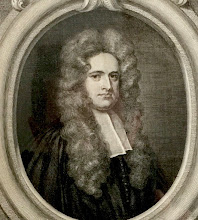Thursday, April 30, 2015
Physics, Economics, and Politics
The psychologist Carl Jung often considered basic laws of physics to understand and explain the principles at work in the human psyche. I think this concept can be equally applied to collective constructs like the state and economic systems.
As one extreme example, I'd suggest that North Korea, a totalitarian state with a notable lack of flexibility, spontaneity, or change, exemplifies a concept where a huge amount of "energy" is used to reduce entropy (in an attempt to literally stop it). Energy is used by the North Korean state to primarily direct centripetal forces toward the maintenance of the state and it's rigid economic system. In following this course, the state and its economic vitality are relatively static -- again, only after having expended great amounts of energy in achieving this objective.
As an opposite example, I'd suggest that the United States (up until recently) has utilized relatively little centrally directed energy to the purpose of reducing entropy. Therefore, entropy has occurred at a relatively high rate, resulting in a dynamic release of energy in a very spontaneous way. Individual players applying individual initiative have expressed a general centrifugal force away from the static maintenance of central authority.
So it is that America has always been changing and manifesting incredibly diverse expression that spills energy out symbolically as wealth creation and general creative impulse. The North Korean example (really, any authoritarian institution) uses the energy it has to the end of merely keeping things the same -- attempting to stop any natural impulse toward entropy. The statist ideal must use considerable amounts of the energy available to it to merely hold back the natural tendency toward energy release -- entropy. In so doing, it locks up the potential release of energy that manifests in a dynamic creative economy. The free ideal allows for the natural physical tendency toward entropy and thus does not squander energy or resources to the futile and unproductive goal of merely freezing a status quo. In fact, by allowing the the natural course of events to play out (entropy), vast amounts of energy are released in a sort of spontaneous chain reaction which shows up as incredible diversity and creativity. Of course, the ideal path the United States has been fortunate to have taken is now coming to a close and we can see that, as the state is invested with greater power, enormous resources (energy) are being directed to the mere maintenance of the state and obedience to it. As can be expected in this environment, the attributes of dynamism are slowed and creativity and wealth are stifled.
Statism/socialism is a whining obsessive directing its demand that all things remain static and lifeless. Free society allows for the spontaneous impulse in nature that produces diversity and positive evolution.

